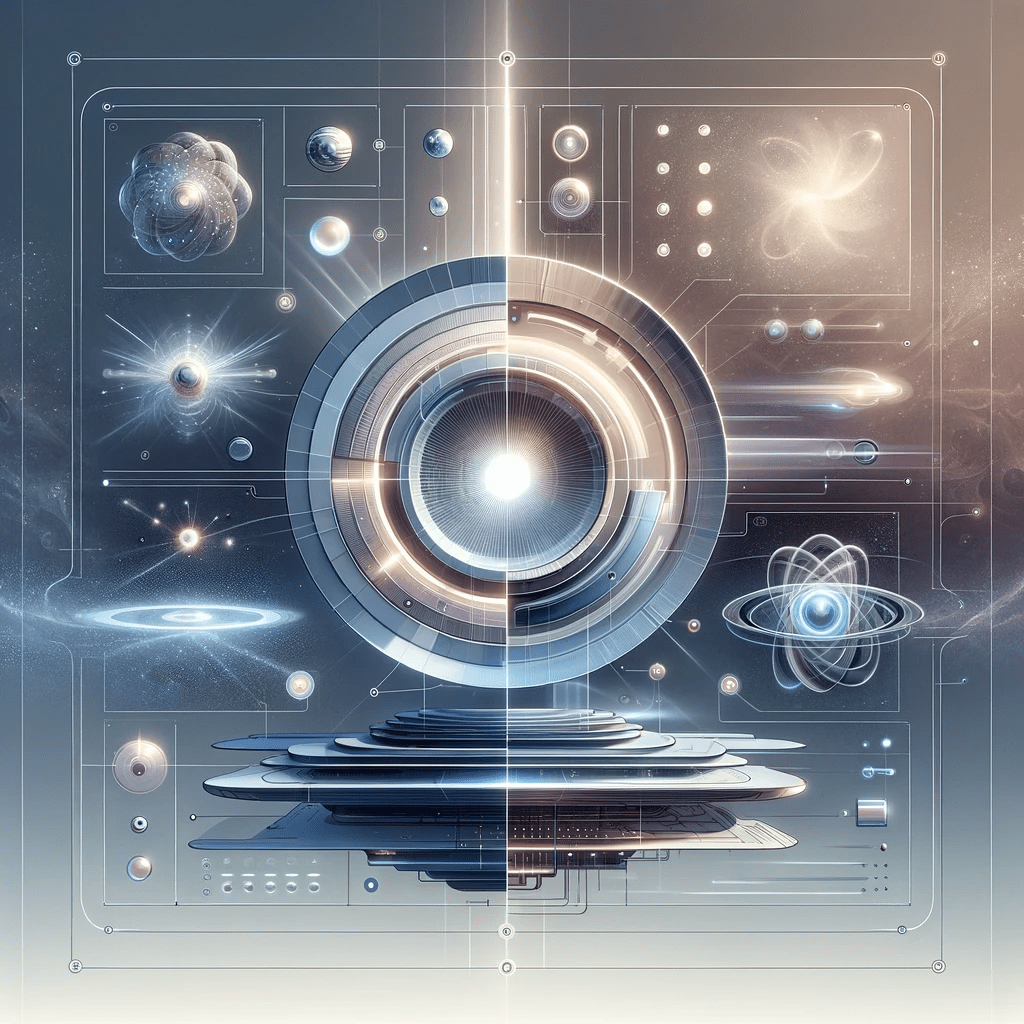Beyond Imagination: Speculative Computing Technologies of a Civilization 1 Million Years More Advanced

While it’s impossible to predict with certainty what a being 1 million years more advanced than humans would use in terms of technology, we can make educated guesses based on current trends in science and extrapolate from there. There are several theories proposed by futurists, scientists, and authors about what such advanced civilizations might be using for computation:
- Quantum computing: Quantum computers, which are in their infancy today, use quantum bits or “qubits” to perform calculations that classical computers would take an impractically long time to solve. An advanced civilization may have refined and optimized quantum computing to a level far beyond our current understanding, enabling them to solve incredibly complex problems, perform advanced simulations, and perhaps even crack previously unbreakable cryptographic codes.
- Biological computing: This refers to the idea of harnessing the computational power of biological systems, such as DNA, for computing tasks. An advanced civilization may have mastered the art of creating synthetic biological systems or even hybrid bio-electronic systems to perform computations at unprecedented scales and speeds. This could enable them to store vast amounts of information in compact, energy-efficient forms and allow for self-replicating or self-healing computational systems.
- Molecular computing: Molecular computing involves using individual molecules to store and process information. A civilization 1 million years more advanced than us may have developed ways to manipulate matter at the atomic level, creating molecular-scale computers with incredible processing power and efficiency. This technology could revolutionize fields such as nanotechnology and materials science, leading to the creation of advanced, smart materials with a wide range of applications.
- Distributed intelligence: Advanced civilizations may have moved away from the concept of centralized computers and instead harnessed the collective intelligence of interconnected beings, devices, or even their entire environment. This distributed approach could involve connecting the minds of individuals, creating a collective consciousness or tapping into the resources of an entire planet, solar system, or galaxy. Such a system could lead to unparalleled levels of cooperation, collaboration, and creativity.
- Neural computing: This concept involves creating artificial neural networks, which are inspired by the structure and function of the human brain. An advanced civilization may have developed highly sophisticated neural computers that can learn, adapt, and evolve, enabling them to tackle complex tasks and make decisions based on vast amounts of data. Such technology could also pave the way for advanced artificial intelligence that rivals or surpasses human intelligence.
- Higher-dimensional computing: This is a more speculative idea, but some theories suggest that advanced civilizations may have discovered ways to harness the computational potential of higher-dimensional spaces, beyond the familiar three dimensions of our universe. By accessing and manipulating these additional dimensions, they could potentially unlock entirely new methods of computation that are unimaginable within the constraints of our current understanding.
- Quantum gravity computing: Advanced civilizations might have discovered a way to unify quantum mechanics and general relativity, leading to the development of quantum gravity computers. These computers could potentially leverage the properties of both quantum and gravitational phenomena, enabling them to perform calculations and simulations that are currently unimaginable.
- Energy-based computing: Harnessing the energy of fundamental particles or forces, such as photons or the strong nuclear force, could provide a civilization with an entirely new way to store and process information. This approach might involve creating computers that use energy itself as a computational medium, leading to highly efficient and powerful systems.
- Time manipulation computing: A highly advanced civilization may have developed an understanding of time that allows them to manipulate it in ways that we cannot currently comprehend. This could lead to the development of computers that can perform calculations across multiple timelines or even alter the flow of time itself to solve problems instantaneously.
- Exotic matter computing: The discovery and understanding of exotic forms of matter, such as dark matter or negative mass particles, might enable advanced civilizations to create computers that exploit the unique properties of these materials. This could lead to entirely new computational paradigms that challenge our current understanding of information processing.
- Consciousness-based computing: An advanced civilization may have discovered a way to harness the computational capabilities of consciousness itself. This could involve creating computers that integrate conscious entities, allowing them to process information and solve problems in ways that are fundamentally different from traditional computing methods.
- Multiverse computing: If the concept of a multiverse is proven to be true, advanced civilizations might be able to tap into the computational resources of parallel universes. By exchanging information and performing calculations across multiple universes, these civilizations could achieve computational feats that are currently beyond our wildest imagination.
These are just some possibilities for what computing technology might look like for a civilization 1 million years more advanced than us. Keep in mind that the actual technology they would use could be something entirely different, beyond our current comprehension or ability to predict. In any case, contemplating these possibilities expands our own understanding of what might be achievable and inspires us to push the boundaries of our current technological capabilities.


